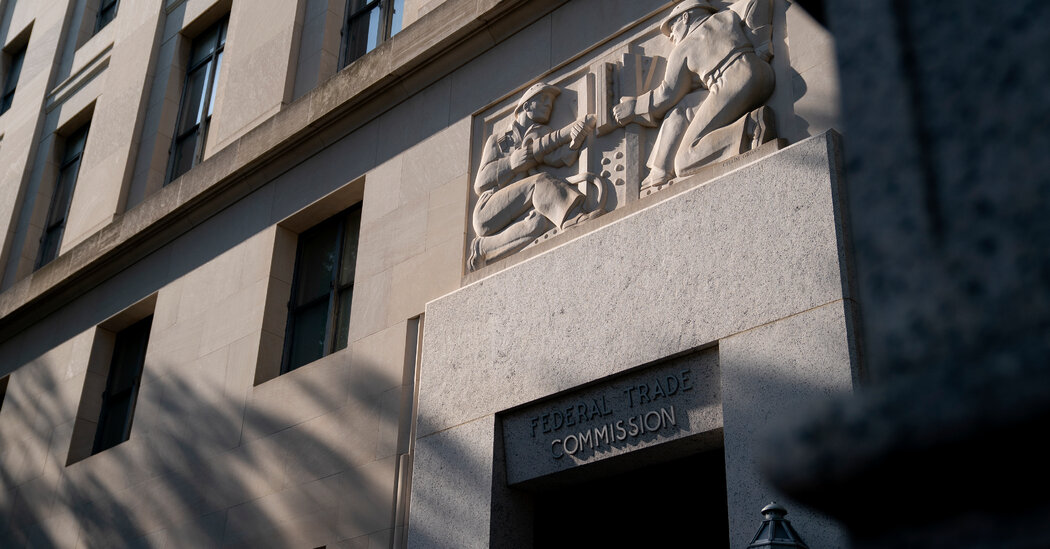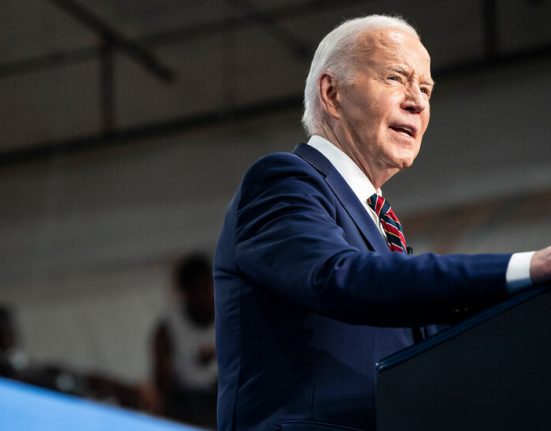A federal judge on Wednesday backed an initial legal challenge to the Federal Trade Commission’s ban on noncompete agreements, which is scheduled to take effect in September.
Judge Ada Brown granted an injunction requested by several plaintiffs, saying the ban cannot be enforced against them pending a final ruling.
But while the ruling is preliminary, she said that the F.T.C. lacked “substantive rule-making authority” with respect to unfair methods of competition and that the plaintiffs were “likely to succeed on the merits” of their challenge.
Judge Brown, of U.S. District Court for the Northern District of Texas, said she expected to issue a final decision by the end of August.
The commission “stands by our clear authority, supported by statute and precedent, to issue this rule,” said Douglas Farrar, an F.T.C. spokesman. He added that the agency would “keep fighting” noncompetes in an effort to promote worker mobility and economic growth.
In April, the tax firm Ryan L.L.C. sued to block the near-total ban on noncompetes, just hours after the F.T.C. voted 3 to 2 to adopt the rule. The U.S. Chamber of Commerce later joined the case as a plaintiff, as did the Business Roundtable and two Texas business groups.
Banning noncompete agreements, which prohibit workers from switching jobs within an industry, would increase workers’ earnings by at least $400 billion over the next decade, the F.T.C. estimates. The agreements affect roughly one in five American workers, or around 30 million people, according to the agency, whose purview includes antitrust and consumer protection issues.
“If you’re not working in the most productive place you could be working because of a noncompete, that’s a loss for the economy,” Aviv Nevo, director of the F.T.C.’s Bureau of Economics, said at a conference in April.
Business groups argue that the ban would limit their ability to protect trade secrets and confidential information. The Chamber of Commerce and other groups assert that the F.T.C. lacks constitutional and statutory authority to adopt its proposed rule, with Ryan L.L.C. calling it “arbitrary, capricious, and otherwise unlawful.” Another lawsuit seeking to block the rule is pending in federal court in Pennsylvania.
But the three Democrats on the five-member commission maintain that it can legally issue rules defining unfair methods of competition under the F.T.C. Act of 1914, the law that created the agency. Their position has garnered some bipartisan support, too: Representative Matt Gaetz, Republican of Florida, argued in a brief filed in the Texas case that the noncompete ban falls “squarely within” the rule-making authority granted to the commission by Congress.
The Supreme Court’s decision last week to limit the broad regulatory power of federal agencies could raise the agency’s legal hurdles.
As litigation over the noncompete rule drags on, some lawyers are already advising employers to start relying more heavily on different agreements to protect trade secrets and business interests.
In a blog post after the F.T.C. adopted its noncompete ban, the law firm Winston & Strawn suggested that employers adopt alternative measures, such as narrowly tailored nondisclosure agreements and requirements that employees repay the company for training costs if they leave before a set period — known as training repayment agreement provisions, or TRAPs.
“Focus on these additional protections has become greater,” said Kevin Goldstein, an antitrust partner at Winston & Strawn.
But even those agreements are under increasing scrutiny. The commission’s final rule encompasses “de facto noncompetes” — measures that, in effect, prevent a worker from switching jobs within an industry, even if they aren’t labeled noncompete clauses. And employers are eyeing the shifting landscape of state and federal restrictions on such covenants, including nondisclosure agreements, beyond the F.T.C.’s rule.
While the commission’s vote to ban noncompetes has garnered the most attention, moves from other federal agencies and state legislatures against agreements that restrict worker mobility are simultaneously on the rise.
“There’s been increased hostility toward these agreements in general, across the country,” said Christine Bestor Townsend, co-chair of the unfair competition and trade secrets practice group at Ogletree Deakins.
Last month, a National Labor Relations Board judge ruled for the first time that a noncompete clause is an unfair labor practice, as part of her decision in an unfair-termination case. The judge also broke new ground by barring a nonsolicitation clause, which restricts soliciting clients or employees of a former employer; she argued that both types of agreements could chill protected activity, including union organizing.
That ruling followed a memo last year from the labor board’s general counsel, Jennifer Abruzzo, that clarified her view that noncompete provisions in employment contracts violate the National Labor Relations Act, except in limited circumstances.
“It’s one thing to get a guidance memo from the general counsel, which is significant and important,” said Jonathan F. Harris, an associate professor at Loyola Law School in Los Angeles who studies contracts and employment law. “And it’s another thing to see the adjudication side of the N.L.R.B. agree with her.”
These kinds of restrictive covenants tend to scare workers away from labor organizing, Mr. Harris said, “because the consequences of being fired for organizing become that much greater if you can’t get another job afterwards.”
Other federal agencies have jumped in as well, eyeing a range of employment provisions that they argue unfairly constrain workers. It’s part of the whole-of-government approach by the Biden administration to what it considers anticompetitive restraints on worker mobility.
The Consumer Financial Protection Bureau, for example, issued a report last summer on the dangers of provisions requiring workers to repay training costs if they leave a job before a certain time elapses.
It’s not just a federal push: State governments are also stepping in to promote worker mobility — a trend that was in motion before the F.T.C. voted to ban noncompetes in April, but one that has gained momentum since.
Last month, the Rhode Island legislature passed a bill to ban noncompetes, joining Minnesota, California, Oklahoma and North Dakota. Dozens more states have enacted partial restrictions.
“Minnesota didn’t turn into a gaping crater,” said Pat Garofalo, the director of state and local policy at the American Economic Liberties Project, a progressive think tank, referring to the state’s wide-reaching ban on noncompetes that went into effect last year. “Once a domino falls over, a bunch of other dominoes fall over after.”
State laws can also prove more resilient to challenges than federal rules.
“State legislatures obviously have a lot of interest in getting these rules on the books right now,” Mr. Garofalo said.













